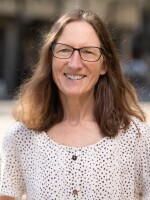Worldwide, people are working through what it means to be knocked off course and find a new normal, which is one definition of resilience. We’ve been airing a monthly series on Natural Disasters and Preparedness, funded by the UO Wayne Morse Center for Law and Politics, but this month we reset our compass. We found some people who deal with uncertainty in their work, and asked what resilience means to them.
Amber Lippert owns Camas Swale Farm with her husband Jonah. Speaking from her Coburg home, with her young daughter nearby, she says farmers have to be flexible and adaptable, “We grow a lot of different vegetables and sometimes it’s overwhelming, it’s a lot to keep track of. But at end of day, if one thing fails or doesn’t do as well, you know you have lots of other choices to keep people with a colorful balanced spread.”
Lippert says lots of unexpected things happen on a farm. One spring, they saw bad weather in the forecast and used a technique they’d seen on Instagram to protect their tomatoes, which was "something we had never done before, but that one act of staying out there late with headlamps on getting these hoops over the tomatoes, saved the whole crop.”

Planning for disturbances is key, agrees Greg Erwin. The CEO of Sapient Private Wealth Management says, "Being resilient, to me, is really about looking ahead and assuming that you’re going to have these kinds of disruptions, and being prepared to handle them.”
Having weathered several financial roller coasters, Erwin and his colleagues know how to work with clients who are frightened, anxious and emotional. “Being a calming source to clients," he says, "and having a positive attitude is super important for us.”
Dr. Jessica Ellis is a Sports Medicine physician with Oregon Medical Group. She often treats athletes who may be frustrated by a season cut short or a goal unreached. Coronavirus has added new twists.

“I just saw a patient today," she says, "who I had to give the diagnosis of an ACL tear to and she’s in college and had a lot of plans for different activities, and with the COVID virus situation we can’t do elective surgeries right now and so she can’t even plan when she’s going to get her knee fixed.”
Ellis advises focusing on what patients can control, in this case riding a bike or doing upper body weight training. “What I’ve seen from patients who do demonstrate resiliency, and can focus on those things," she says, "they do far better both in a recovery standpoint as well as not getting stuck in the negative.”
Ellis also stresses the importance of remaining socially connected.
Connection has risen in value lately. Lippert says they were inspired by others to open their CSA early and provide delivery options, noting, “There’s a lot of farmer-to-farmer networking and resiliency in our small farmer community happening.”

She says about 40 percent of their sales had been to restaurants. With that market largely closed, they’re able to provide CSA shares to more families this year.
Sapient’s Greg Erwin says three-quarters of their staff are working from home, which makes checking in with them extra important. “The key for us is, really, over-communicate. Because we take for granted that we can walk by somebody’s office or shout across the room and when you can’t do that, we have to be careful to not become isolated, and become in silos.”
He says they have systems in place to do transactions and meetings remotely. Like most Americans, they’re learning a lot.
Dr. Ellis says Oregon Medical Group worked long hours to set up telemedicine portals for its caregivers, which means “not just calling them over the phone, but actually seeing and interacting with our patients. We may need to rely upon that technology for three months, six months who knows, a year, we do not know.”
As we don’t know how long physical distancing will be advised, Erwin has a thought about riding out this upended time. He says, “The more that people can focus on what they can do for others helps their own mental health, and having a purpose that way, so that’s something I’m certainly trying to do.”
All this advice applies to farming, medicine, radio storytelling and you. Be resilient.
Funding for KLCC’s Oregon’s Natural Resources and Resilience series is provided by the UO Wayne Morse Center for Law and Politics.





